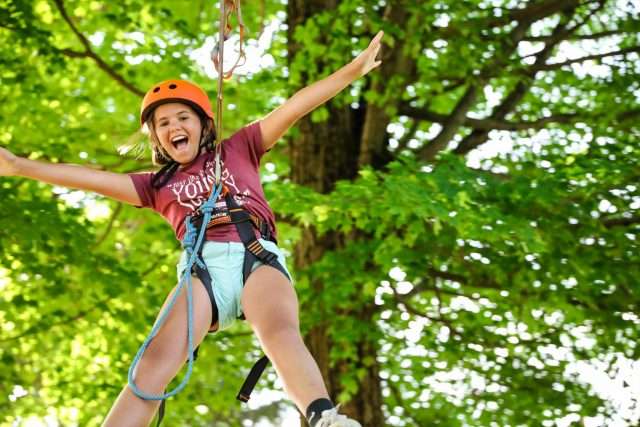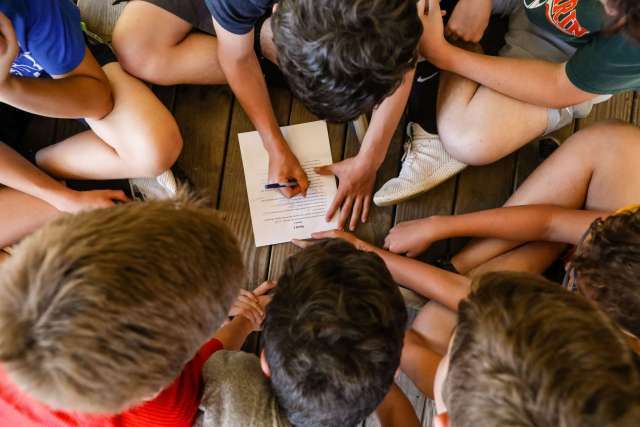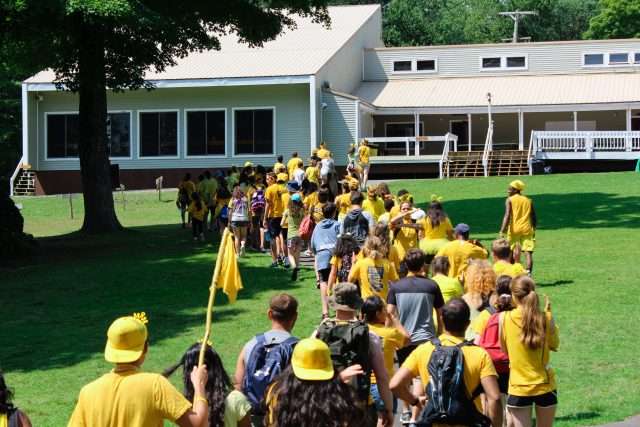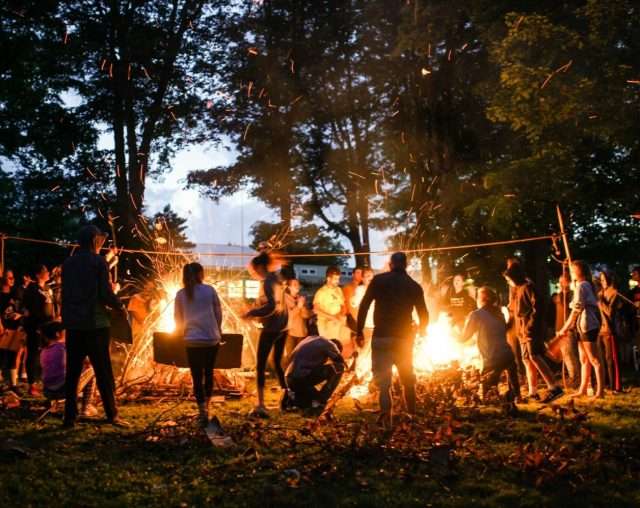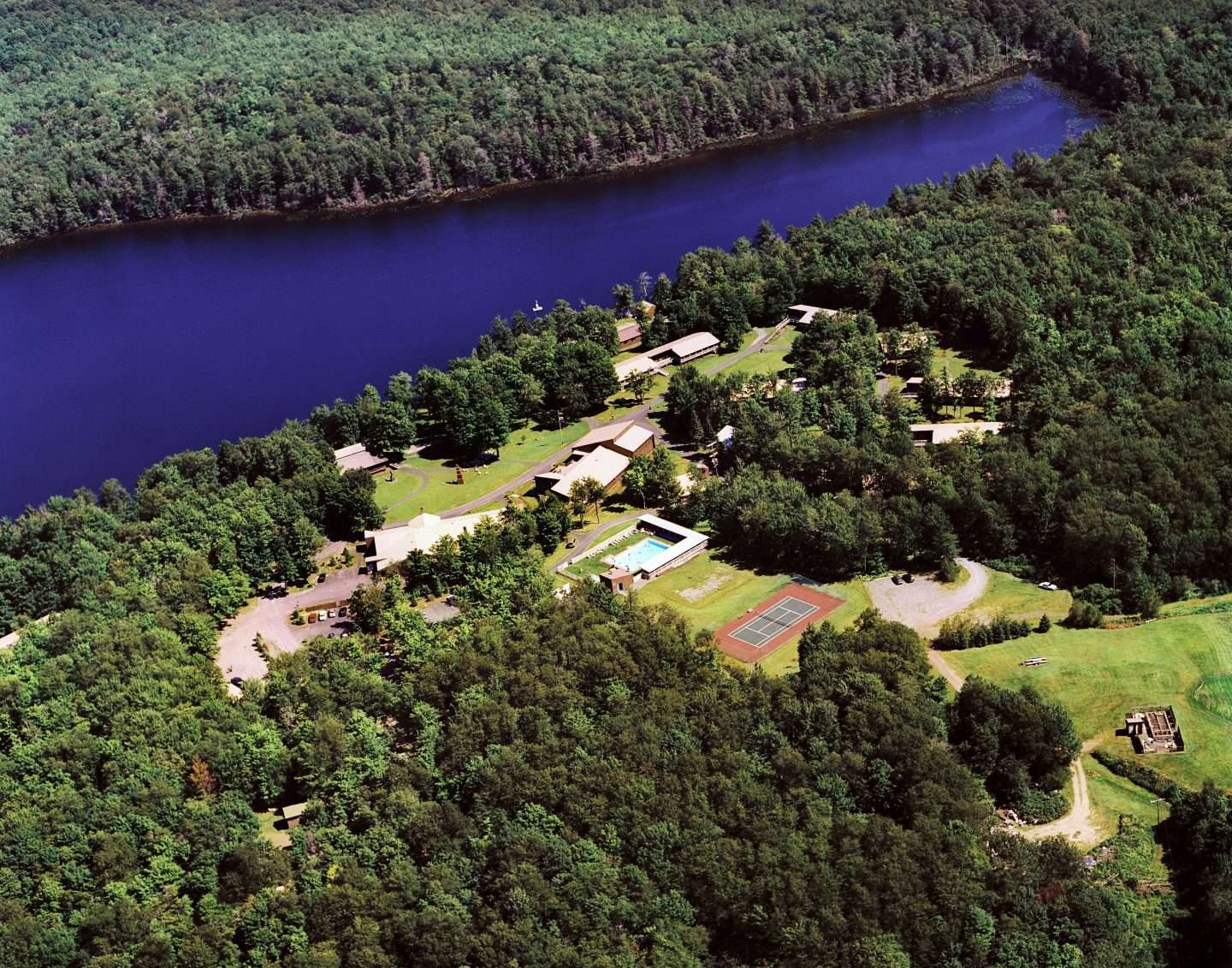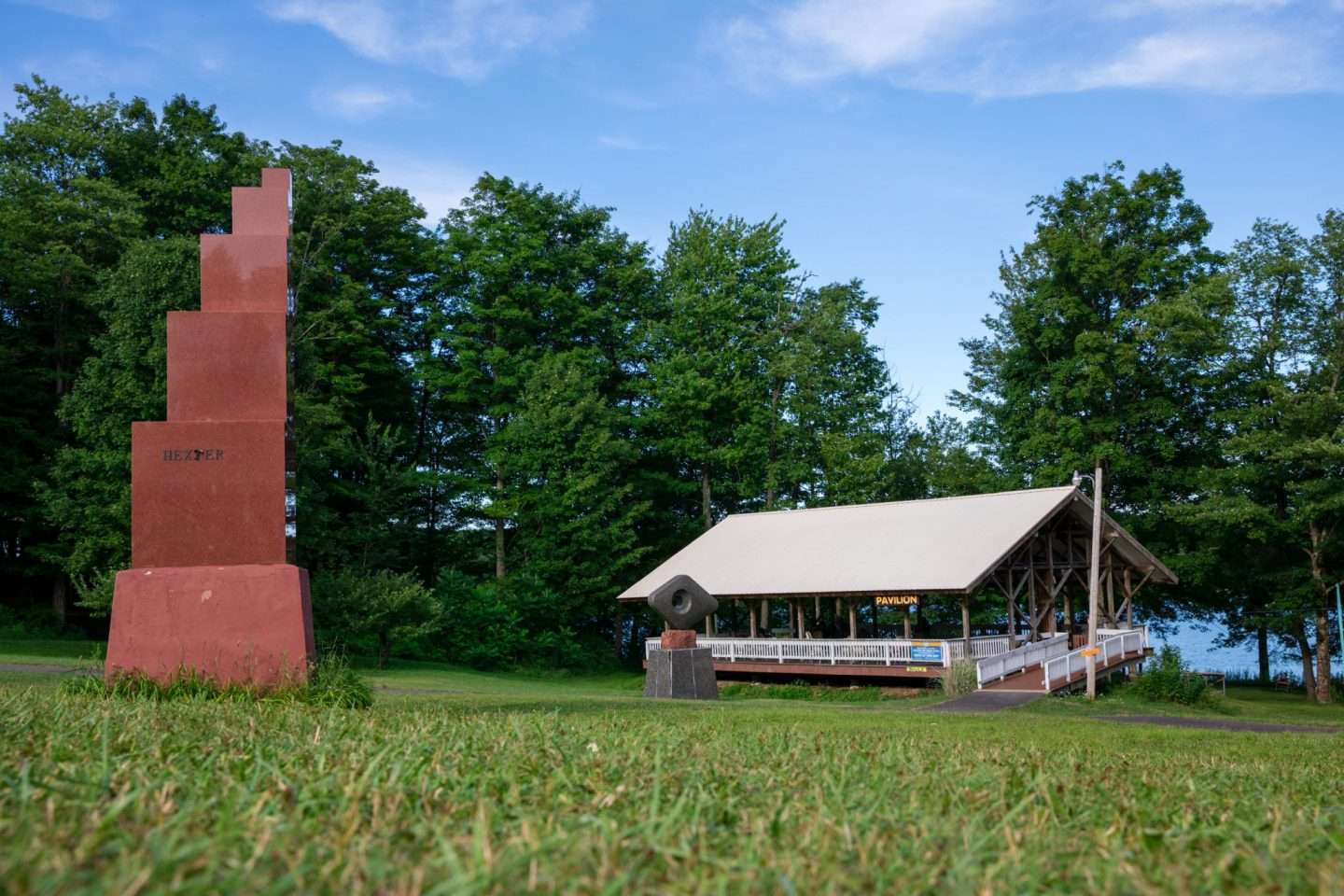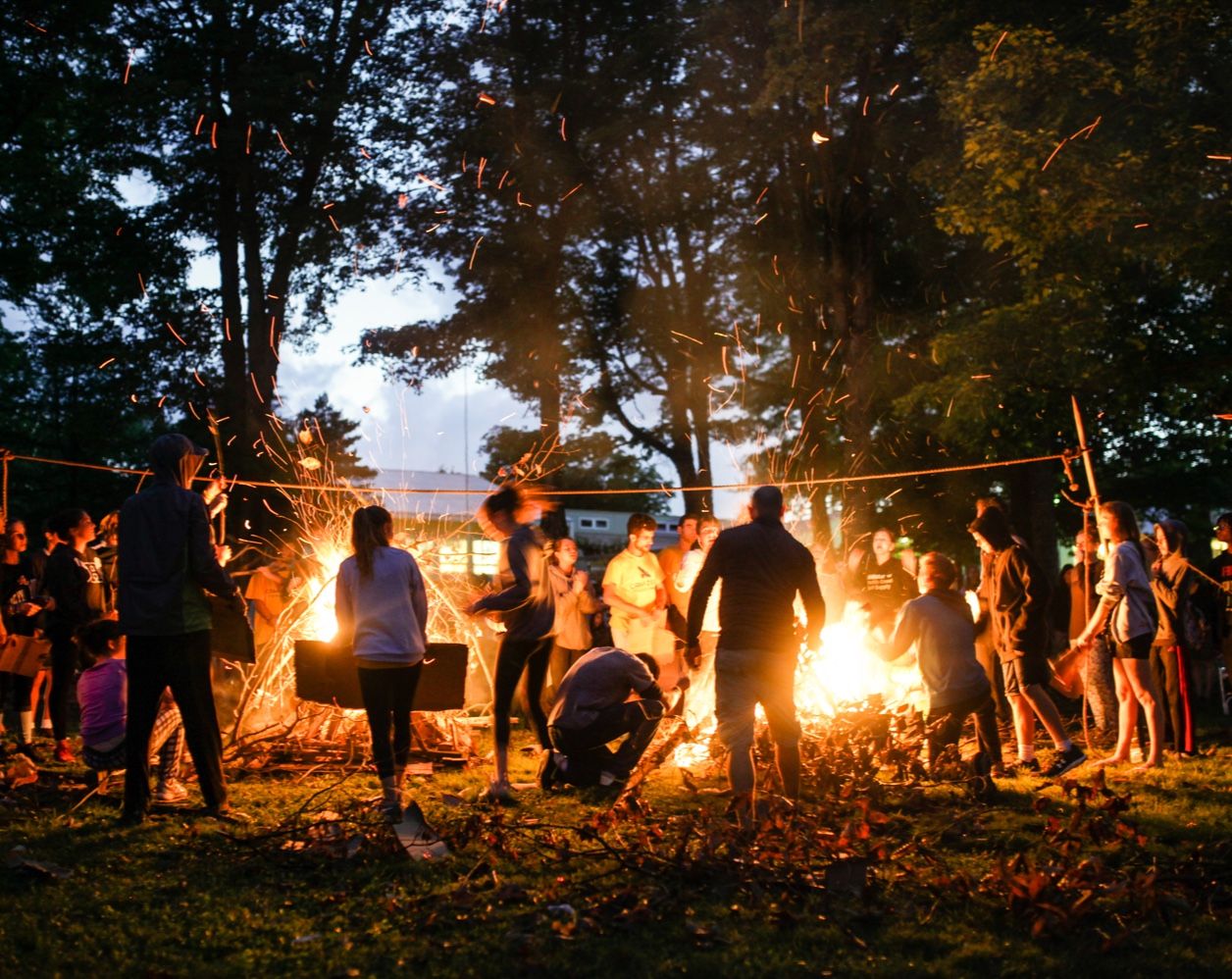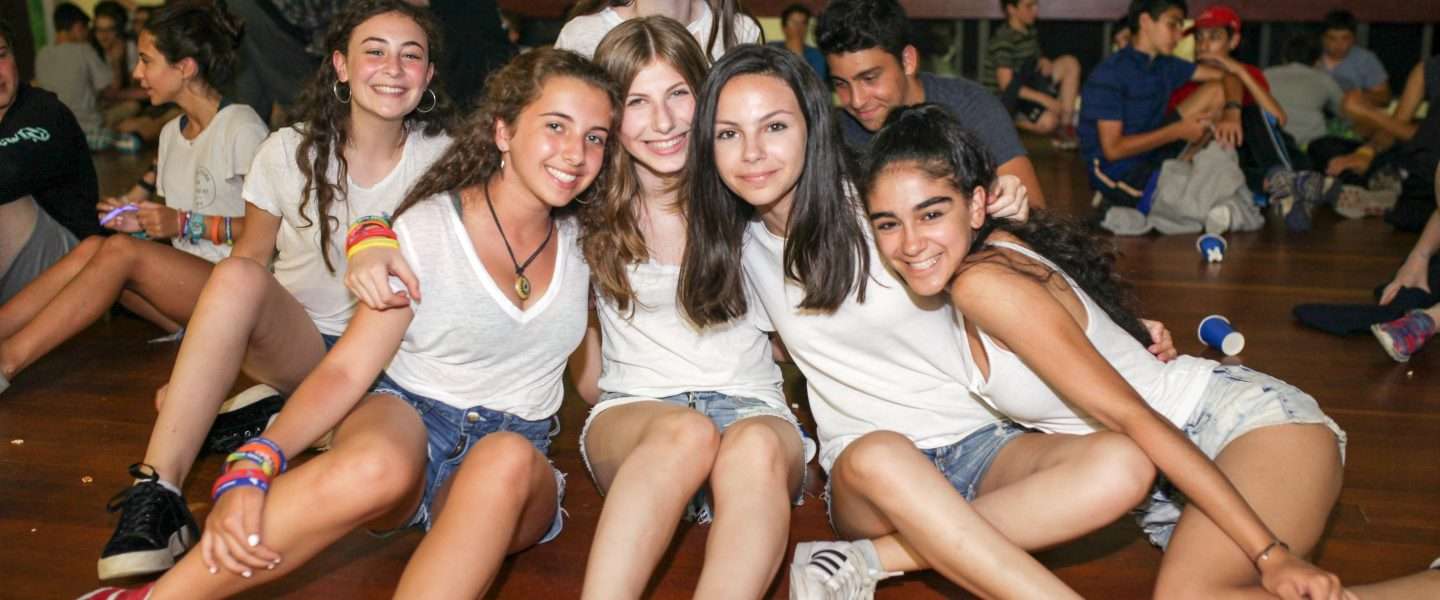Clearing the Fear to Make Way for a Formative Experience
Adapted from the Child Mind Institute
Portraits of summer camp showcase sun-splashed kids playing sports, swimming, and getting freckles. Not pictured is any sign of anxiety, a totally natural reaction to a new adventure and a several-week separation. All kids experience a mixture of excitement and nervousness when summer camp approaches.
Of course, getting past these initial jitters is part of the value of the camp experience. Indeed, summer camps hone many skills that are useful for future success. These include resilience, self-reliance, social adaptability, and of course, the ability to overcome jitters before an important and valuable life event. The camp experience — being away from home among peers — also helps kids develop social skills, separate in a healthy way from parents, cultivate independence, and build confidence.
The key to helping your camper get over the pre-camp jitters is to acknowledge their feelings and give them tools to tame those feelings, thus making room for the life-changing, skill-building experience they’re about to have:
1) Let your child feel a sense of ownership over the experience. Familiarize them with the camp environment by looking at pictures and reviewing the online map of camp, and teach them about the camp’s activities so they can formulate expectations.
2) Help your child get excited about camp: Take them shopping for new gear and focus them on fun things about camp that they can look forward to.
3) Avoid focusing on what makes kids anxious. Instead of asking leading questions like, “Are you nervous about making friends?” ask open-ended questions like, “How are you feeling about making friends?”
4) Don’t trivialize their concerns or offer glib reassurances. “There’s nothing to worry about!” or “Everyone loves camp!” may discourage your child. Instead, show that you have empathy and acknowledge their concerns.
5) Focus on concrete details in conversations leading up to camp. Avoid abstract issues like what it’s like to be away from home, and focus instead on cabin details (like the air-conditioning and private bathrooms!), song-filled meals in the dining room, lifelong friendships people make at camp, and warm nighttime campfires.
6) Reflect on your own formative experiences away from home and share positive aspects of them with your camper. Show that you are willing to talk about the new things they’ll be doing, whether it’s eating new food, sleeping in a bunkbed, getting along with cabin-mates, or even cleaning their own area and folding their clothes!
7) Go through “rehearsals.” A shorter-term sleepover or a night at Grandma’s will make it easier for your child to be away from home.
8) Don’t linger at drop off. Keep the goodbyes short and sweet.
9) Make communication easy and accessible: Pack envelopes and stamps, and make sure your child understands how easy it will be to write to you.
10) Have goals for each letter, so your child will come away focused on how she is adjusting, rather than on how much she wants to come home. For example, in the first letter from your camper, the goal might be to make one friend within the first two or three days of camp. When you write initial letters to camp, you can stress that it’s normal for the first couple days to feel hard (and for that reason, don’t be too upset if you get a sad letter in the first few days of camp, which is an adjustment period).
11) Try not to communicate your own anxiety; your child can pick up on your feelings even if you don’t verbalize them. What you want to share is your confidence in your child and the summer experience.
12) Help your child formulate realistic, goal-oriented plans for making friends or toasting the perfect marshmallow or passing a swimming test. The thrill of completing these plans can give your child a feeling of success and take their mind off of the jitters.
13) Make sure the staff and counselors know anything they need to know about your camper to head off problems and maximize the experience. Does your camper wet the bed? Are they anxious about water? And let your child know that counselors and the rest of the staff are there to support them, whether they have a simple question or a larger need.
And remember that the cost of a good camp covers more than the arts and crafts: It includes a team of professionals and counselors committed to fostering social learning in your child. [At Camp Zeke, we call this group our Camper Care Team. It includes a team of teachers with advanced degrees, parents, a doctor, and countless other professionals. They monitor the campers throughout the summer to make sure everyone is adjusting well and thriving in the camp community.]
Summer camp is a unique situation where your child engages with a large community of peers and learns how to interact socially in a less-structured environment than school. This is a time for kids to actively make decisions for themselves and develop a sense of self-reliance. Though you may be concerned and wish to intervene, your supportiveness will give your child room to take ownership over the experience themselves. And that’s what leads to the tremendous growth that kids experience at camp.
